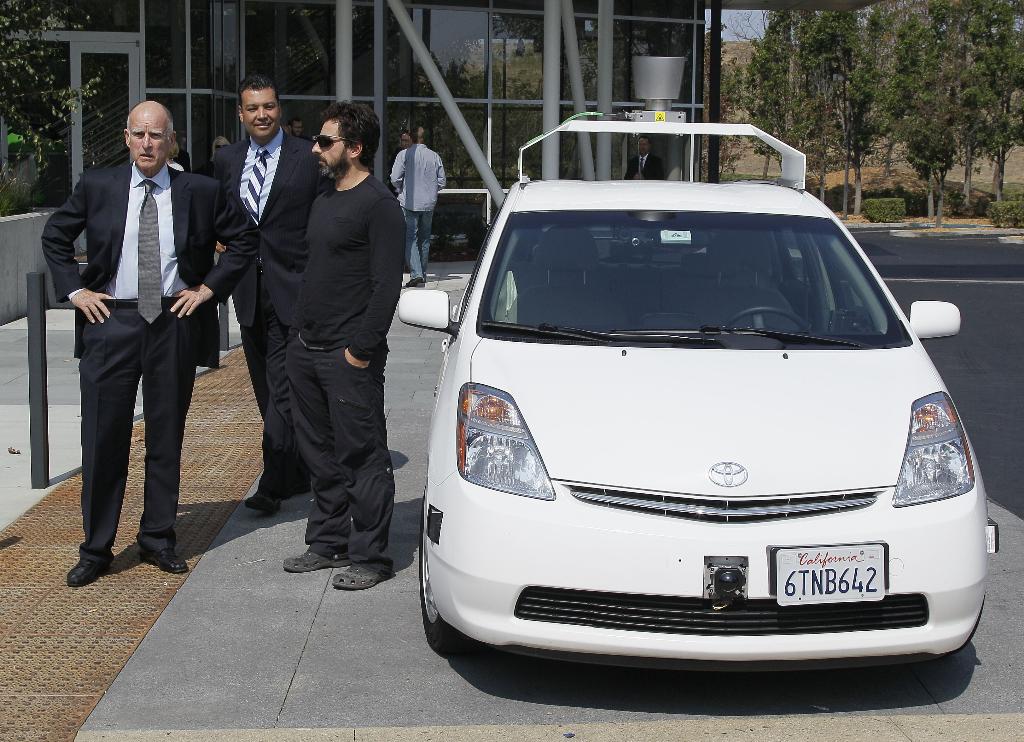Let's call this one a good news, bad news, good news story.
On Friday, September 11, the California Senate approved SB 350, the Clean Energy and Reduction Act--by far the most far-reaching climate change legislation enacted in the U.S.
The bill's provisions codify Governor Jerry Brown's goals of generating half the energy used in the state from renewable sources by 2030, and doubling the energy efficiency of buildings during the same period.
DON'T MISS: CA Assembly Approves Aggressive New Plans To Combat Climate Change (Jun 2014)
That's the good news.
The bad news is that a third goal, reducing petroleum use in vehicles by up to 50 percent, is no longer part of the legislation after amendments made last week in the Assembly.
It was removed after intensive and high-dollar lobbying by the oil industry--focused on the message that jobs would be lost, gas prices would soar, and California's economy would become unviable if climate-change legislation were enacted.

CA Governor Jerry Brown, State Sen. Alex Padilla, and Google's Sergey Brin beside an autonomous car
Media coverage focused a great deal on the oil industry's success at quashing the petroleum-reduction goal, with angry reactions from a variety of groups.
But it turns out there's some offsetting good news for that one, too.
In a day-after post on the NRDC Switchboard blog, Max Baumhefner of the Natural Resources Defense Council writes that amidst all the sturm und drang of high-dollar oil lobbying, the revised third part of SB 350 has been largely overlooked.
ALSO SEE: Cross-Border Carbon: Mexico Sets Limit On Climate-Change Emissions
News coverage of the bill's passage "focused on the oil companies' unsightly lobbying to remove a petroleum reduction goal from the bill," he writes.
But "few have noticed the provisions of Senator Kevin de León's legislation that make replacing oil as the dominant transportation fuel a core mission of the electric industry."
!['Which would you choose: Gas or Electric?' California SB 350 [via Natural Resources Defense Council] 'Which would you choose: Gas or Electric?' California SB 350 [via Natural Resources Defense Council]](https://images.hgmsites.net/lrg/which-would-you-choose-gas-or-electric_100527281_l.jpg)
'Which would you choose: Gas or Electric?' California SB 350 [via Natural Resources Defense Council]
That goal allows "Californians to 'fill up' at home on cleaner electricity that's the cost equivalent of dollar-a-gallon gas."
The key is that "Senator de León's bill also establishes that a 'principal goal' of electric utility 'resource planning and investment' is 'to improve the environment and to encourage the diversity of energy resources through improvements in energy efficiency, development of renewable energy resources, and widespread transportation electrification."
And widespread deployment of electric vehicles is expected to help with grid stabilization, making it less expensive for utilities to meet the goal of 50 percent renewable electricity in just 15 years.
MORE: Nissan CEO Ghosn: Climate Change Must Be Corporate Humanitarian Cause
It will also significantly cut the cost of commuting for Californians--that equivalent of dollar-a-gallon gasoline--giving them more money to spend on other things.
So while the 50-percent petroleum reduction goal is not part of the law, the goal of electrifying California's transportation is now official policy.
![Sacramento Municipal Utility District electric car DC fast-charging site, Jun 2015 [George Parrott] Sacramento Municipal Utility District electric car DC fast-charging site, Jun 2015 [George Parrott]](https://images.hgmsites.net/lrg/sacramento-municipal-utility-district-electric-car-dc-fast-charging-site-jun-2015-george-parrott_100514524_l.jpg)
Sacramento Municipal Utility District electric car DC fast-charging site, Jun 2015 [George Parrott]
That basically sounds like an invitation to California's electric utilities to eat the oil industry's lunch.
Win one, lose one?
_________________________________________________













